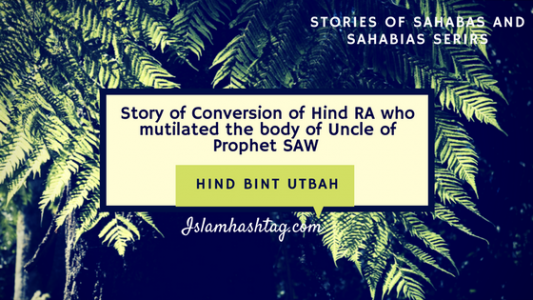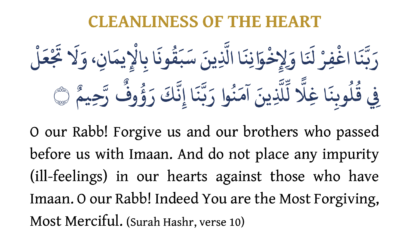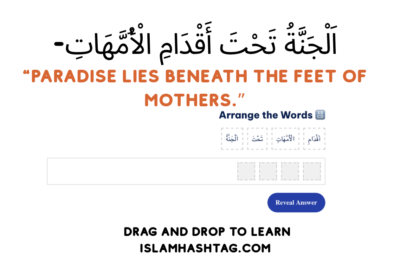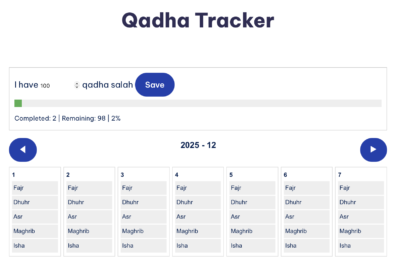Hind bint Utbah -Wife of Abu Sufiyan (RA )
The story of conversion of Hind bint Utbah is a lesson for all the People who think that their sins are too much and that they should continue sinning because there is no way out.
Hind bint ʿUtba هند بنت عتبة | |
|---|---|
| Born | 6th century
Mecca, Hejaz, Arabia |
| Died | 7th century
My non-Tech Mom loves this Digital Tasbih because her counts are never lost. Alhumdulillah, Now she spends close to Four hours in dhikr everyday. Would you like to build your dhikr habit too?
It’s completely free. Rashidun Caliphate |
| Other names | Hind al-Hunūd (Arabic: هند الهنود) |
This story not only shows us how Patient and calm our dear Prophet SAW was but also shows us how the door of Islam is Open for anyone and every One
So,here is the story of Hind bint Utbah –
In the books of seerah, Hind bint ‘Utbah RA emerges as a ferocious figure, an infamous villainess who devoted a large part of her life to bringing down her sworn enemy, the Messenger of Allah, Muhammad (sallallahu alayhi wa sallam). Although she was the wife of the Prophet’s distant cousin, the Qurayshi chieftain Abu Sufyan, Hind was most known for her relationship with Rasul Allah: she was one of his earliest enemies, and one of those most dedicated to undermining and defeating him.
Perhaps her most infamous act, Hind commanded her slave Wahshi ibn Harb to hunt down Hamza ibn Abdul Muttalib ( RA ) on the battlefield of Uhud in retaliation for the death of her father and brothers at the hands of the Muslim army at the battle of Badr.
Then she climbed a rock and “shrieked at the top of her voice”:( ref : Ibn Ishaq/Guillaume p. 385 )
Poem by Hind bint utbah
We have paid you back for Badr
and a war that follows a war is always violent.
I could not bear the loss of Utbah
nor my brother and his uncle and my first-born.
I have slaked my vengeance and fulfilled my vow.
You, O Wahshy, have assuaged the burning in my breast.
I shall thank Wahshy as long as I live
until my bones rot in the grave
RasulAllah SAW’s grief and anger were so pronounced when he heard of this act, that it was recorded by Abdullah ibn Mas’ud that, “We have never seen the Messenger of Allah weeping so much as he was for Hamza bin ‘Abdul Muttalib. He directed him towards Al-Qiblah, then he stood at his funeral and sobbed his heart out.”
In the narrations that discuss the strength of Hind’s enmity towards Islam, certain characteristics can’t help but be noticed: her fierce sense of honor, the passion behind her beliefs, the iron determination that fueled all her actions.
It is not recorded that they met in person until after the Conquest of Makkah (although that may have happened, due to their familial relationship), but it is obvious that RasulAllah (sallAllahu ‘alayhi wa sallam) was aware of her as an individual, and of her role in the Makkah-based opposition against him.
After the conquest of Mecca Abu Sufyan accepted Islam .
Hind also wanted to accept Islam . Abu Sufyan (ra) though pleased with his wife’s decision was worried about her act in the Battle of Uhud. He did not wish to upset the Prophet (SAW) by reminding him that his wife mutilated his beloved uncle. He advised her to take some women from her tribe and visit the Messenger (SAW). Hind (ra) gathered some women and requested Uthman ibn Affan (RA) to accompany them.
Hind (RA) still felt remorse for what she had done with Hamza (ra). To hide her shame, she veiled her face so that the Prophet (sa) would not recognize her. After testifying and taking her oath of allegiance she removed her veil. She was a woman of pride and self-respect she could not hide her identity.
The Messenger of Allah did not insult her, turn her away, denigrate her, or otherwise reject her. He treated his former enemy with all the grace and dignity befitting him, sallAllahu ‘alayhi wa sallam. The Prophet (sa) made no mention of what happened at the Battle of Uhud, and welcomed her into Islam. Hind (ra) said, “By Allah (swt), there was no house on earth that I wanted to destroy more than your house. Now, there is no house on earth that I so dearly wish to honour and raise in glory than yours.”
The once vicious enemies of Islam, Abu Sufyan (ra) and Hind (ra) began to work to promote it . The lady who used to sing fierce poetry for the opponents of the Prophet (sa), now recited Quranic verses to keep the morale of Muslim soldiers high. Such is the fruit of guidance!She was present at the Battle of Yarmuk, and narrated several ahadeeth that were recorded and authenticated in various books of ahadeeth.
At one point, when arrows started raining down on Abu Sufyan and he tried to turn his horse away, Hind struck his horse in the face with a tent-peg and said: “Where do you think you’re going, O Sakhr? Go back to battle and put effort into it until you compensate for having incited people in the past against Muhammad.” An arrow later hit Abu Sufyan in the eye and he became blind
Lesson :
Glory be to ALLAH ,the most exalted .This story is a lesson for all the People who think that their sins are too much and they should continue sinning because there is no way out . Allah swt is the most merciful and there are many hadeeths which says that sincere repentance is always accepted by Allah swt and Allah knows the best.
Discover more from Islam Hashtag
Subscribe to get the latest posts sent to your email.






Alhamdulillah the story is very beautifully written and a good lesson for this who still think my sins are not forgivable. May Allah reward you for your efforts and help you to work in the path of Allah.
Jazak Allahu Khair.
so you guys just beleive that this archnemesis of islam just became muslim like her husband and all ok? Cant you see that they just used being muslim to take control of the islamic state and thus mecca. They just acted cleverly to regain the control of mecca. Their son and grandson made really bad things to people who were real muslims (not turncoats) since the beginning.
So with some clever tricks they easily owned the product of years of effort, struggle and development of the prophet.
May Allah accept your hard work. Ameen.
This story is inauthentic and written in an Arab history book complied a century after the events it entailed. It was likely very inaccurate and the cannibalism probably never occured. We should only write stories that we have confirmed are from reputable sources with such certainty to avoid creating confusion and altering or dramatizing history. JazakhAllah
I heard the story of Hinda when I was young but now it teach me differently because I know the morale of which that Allah is the must merciful and no matter how much our since are big he can forgive us.